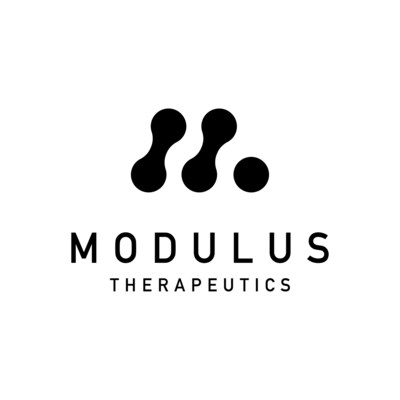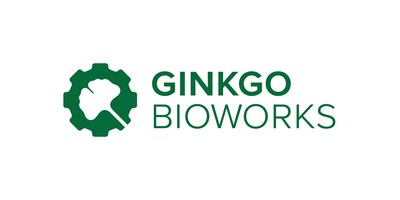Ginkgo Bioworks Acquires Modulus Therapeutics' Cell Therapy Assets to Strengthen Next-Gen CAR Designs
Modulus Therapeutics is a cell engineering company focused on the design of next-generation cell therapies for autoimmune diseases. In contrast to legacy cell therapy design, the company uses a combinatorial approach to build and screen cell therapy components that work in concert with one another to yield novel cell behaviors.
Modulus has used its platform to develop and screen libraries of novel NK-specific and T-cell specific CAR and switch receptor designs, which enable improved control and performance of immune cell-based therapies. This technology has the potential to improve the safety and efficacy of cell therapies by allowing for more precise control over activation and targeting. Modulus' CAR-NK and CAR-T components are designed to enhance proliferation and cytotoxicity, even in inhospitable cellular environments, providing a deeper and more durable response against target cells.
Modulus' assets complement Ginkgo's extensive cell therapy capabilities. With this addition, Ginkgo looks forward to supporting its customers who are improving the performance of T-cell and NK-cell based CAR therapies to treat solid tumors, autoimmune, and other diseases.
Jason Kelly, CEO and co-founder of Ginkgo Bioworks: "Modulus Therapeutics has built an array of incredible cell therapy assets that we are excited to add into the significant cell therapy capabilities Ginkgo has developed to date. Modulus' CAR and switch receptor designs and libraries seamlessly integrate into our existing infrastructure and offerings. We are excited to put these new assets to work for our customers and contribute to the transformative advancements in CAR and cell therapies."
Max Darnell, CEO and co-founder of Modulus Therapeutics: "At Modulus, we have always been motivated by enhancing access to cutting-edge cell therapy innovation. We're very pleased that Ginkgo Bioworks shares this commitment and can leverage our technology to help transform oncology and autoimmune cell therapies. We are thrilled to contribute our innovative designs to the Ginkgo ecosystem, and look forward to seeing these tools deployed across a range of Ginkgo-partnered programs."
Ginkgo's platform works to enable its partners to sample CAR domains with a variety of functional roles and structural positions, sourced from diverse immune cell types. This approach to cell therapy discovery allows partners to thoroughly sample the breadth of therapeutic activities a CAR can produce. Last year, Ginkgo entered a partnership with the Wisconsin Alumni Research Foundation (WARF) to discover and develop next-generation CAR-T cell therapies. Ginkgo also presented new data on its high throughput pooled screening method to discover novel CAR-T designs for solid tumors at the 37th Annual Meeting of the Society for Immunotherapy of Cancer (SITC) in 2022, as well as data on its high-throughput screening platform for chimeric antigen receptor (CAR) libraries at the 26th American Society of Gene & Cell Therapy (ASGCT) Annual Meeting in 2023. The poster highlighted Ginkgo's Foundry-enabled methods for large-scale, combinatorial library design and screening of CAR domains for improved persistence. Ginkgo expects Modulus' cell therapy assets to help Ginkgo continue to strengthen its CAR-T research & development offerings.
Learn more about Ginkgo Cell Therapy Services here.
About Ginkgo Bioworks
Ginkgo Bioworks is the leading horizontal platform for cell programming, providing flexible, end-to-end services that solve challenges for organizations across diverse markets, from food and agriculture to pharmaceuticals to industrial and specialty chemicals. Ginkgo's biosecurity and public health unit, Concentric by Ginkgo, is building global infrastructure for biosecurity to empower governments, communities, and public health leaders to prevent, detect and respond to a wide variety of biological threats. For more information, visit ginkgobioworks.com and concentricbyginkgo.com, read our blog, or follow us on social media channels such as X (@Ginkgo and @ConcentricByGBW), Instagram (@GinkgoBioworks), Threads (@GinkgoBioworks) or LinkedIn.
GINKGO BIOWORKS INVESTOR CONTACT:
investors@ginkgobioworks.com
GINKGO BIOWORKS MEDIA CONTACT:
press@ginkgobioworks.com
About Modulus Therapeutics
Modulus is engineering next-generation immune cell therapies. By leveraging modern molecular engineering tools, deployed in a cell therapy-specific context, Modulus is rewiring immune cells to achieve unique sense-and-respond capabilities without the need for synthetic gene circuits. Modulus is focused on novel context-responsive CAR-NK cells in autoimmunity that feed themselves off of the autoimmune microenvironment for enhanced safety and efficacy. For more information, find us on LinkedIn.
MODULUS THERAPEUTICS CONTACT:
Forward-Looking Statements of Ginkgo Bioworks
This press release contains certain forward-looking statements within the meaning of the federal securities laws, including statements regarding the capabilities and potential success of the acquisition and Ginkgo's cell programming platform. These forward-looking statements generally are identified by the words "believe," "can," "project," "potential," "expect," "anticipate," "estimate," "intend," "strategy," "future," "opportunity," "plan," "may," "should," "will," "would," "will be," "will continue," "will likely result," and similar expressions. Forward-looking statements are predictions, projections and other statements about future events that are based on current expectations and assumptions and, as a result, are subject to risks and uncertainties. Many factors could cause actual future events to differ materially from the forward-looking statements in this press release, including but not limited to: (i) volatility in the price of Ginkgo's securities due to a variety of factors, including changes in the competitive and highly regulated industries in which Ginkgo operates and plans to operate, variations in performance across competitors, and changes in laws and regulations affecting Ginkgo's business, (ii) the ability to implement business plans, forecasts, and other expectations, and to identify and realize additional business opportunities, (iii) the risk of downturns in demand for products using synthetic biology, (iv) the uncertainty regarding the demand for passive monitoring programs and biosecurity services, (v) changes to the biosecurity industry, including due to advancements in technology, emerging competition and evolution in industry demands, standards and regulations, (vi) the outcome of any pending or potential legal proceedings against Ginkgo, (vii) our ability to realize the expected benefits from and the success of our Foundry platform programs, (viii) our ability to successfully develop engineered cells, bioprocesses, data packages or other deliverables, and (ix) the product development or commercialization success of our customers. The foregoing list of factors is not exhaustive. You should carefully consider the foregoing factors and the other risks and uncertainties described in the "Risk Factors" section of Ginkgo's annual report on Form 10-K filed with the
![]() View original content to download multimedia:https://www.prnewswire.com/news-releases/ginkgo-bioworks-acquires-modulus-therapeutics-cell-therapy-assets-to-strengthen-next-gen-car-designs-302105056.html
View original content to download multimedia:https://www.prnewswire.com/news-releases/ginkgo-bioworks-acquires-modulus-therapeutics-cell-therapy-assets-to-strengthen-next-gen-car-designs-302105056.html
SOURCE Ginkgo Bioworks











